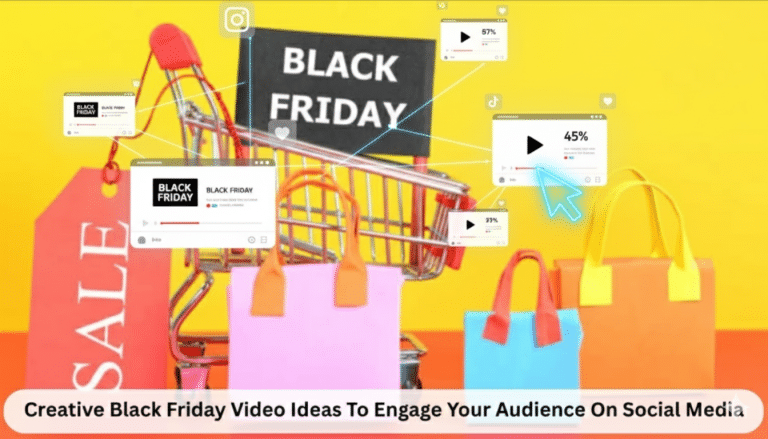
How to Build a Marketing Calendar for Small Businesses Using AI

- Blog
- Small Business Tips
- How to Build a Marketing Calendar for Small Businesses Using AI
Having a well-organized marketing calendar is crucial for small businesses to plan and track their marketing activities effectively. A marketing calendar helps ensure that all marketing efforts are aligned with the overall business goals, maximizing efficiency and impact. It provides a clear overview of upcoming campaigns, content releases, promotional events, and key dates, allowing businesses to maintain a consistent and cohesive marketing strategy.
However, managing a marketing calendar using traditional methods can be time-consuming and prone to errors. That’s where AI comes into play. AI has the potential to revolutionize the way small businesses create and maintain their marketing calendars, making the process more efficient and less error-prone.
In fact, 60% of small businesses that currently use AI or automation in their marketing report that they have saved time and are working more efficiently. Want to join them? This blog post explores the benefits of AI-driven marketing calendars and provides a step-by-step guide on how to implement AI into your existing marketing calendar.
Understanding Traditional Marketing Calendars
A marketing calendar is a strategic tool used by businesses to plan, organize, and execute their marketing activities over a specified period. Its primary purpose is to ensure that all marketing efforts are aligned with the overall business goals, thereby maximizing efficiency and impact. By providing a clear overview of upcoming campaigns, content releases, promotional events, and key dates, a marketing calendar helps businesses maintain a consistent and cohesive marketing strategy. It also aids in resource allocation, ensuring that marketing tasks are appropriately prioritized and executed on time.
Traditional Methods
Traditionally, marketing calendars have been built using a variety of manual tools, such as templates, spreadsheets, and paper-based systems. These methods, while effective to some extent, often require significant time and effort to manage.
- Templates: Pre-designed templates, often available in software like Microsoft Excel or Google Sheets, provide a structured format for planning marketing activities. These templates include sections for campaign dates, objectives, target audience, and key performance indicators (KPIs). While customizable, templates can become cumbersome as the volume and complexity of marketing activities grow.
- Spreadsheets: Spreadsheets are a popular choice due to their flexibility and accessibility. They allow marketers to create detailed calendars with multiple tabs and intricate data organization. However, managing marketing calendars in spreadsheets can be time-consuming and prone to errors, particularly when multiple team members are involved. Version control and data integrity can become significant challenges.
- Manual Tools: Some businesses still rely on paper-based systems or simple digital documents to create their marketing calendars. These methods might include printed calendars, whiteboards, or basic text documents. While these tools are straightforward, they lack the dynamic capabilities required to adapt to changing marketing landscapes and can hinder real-time collaboration and updates.
Despite their limitations, traditional methods have laid the groundwork for systematic marketing planning. However, as the marketing environment becomes more complex and fast-paced, these methods often fall short of providing the agility and insights needed to stay competitive.
Challenges with Traditional Marketing Calendars
Let’s explore some of the challenges associated with traditional marketing calendars and how they can hinder a business’s efficiency and responsiveness.
Time-Consuming Updates
One of the primary challenges with traditional marketing calendars is the labor-intensive nature of manual updates and adjustments. As marketing campaigns evolve, new tasks arise, deadlines shift, and priorities change, requiring constant updates to the calendar. This process can be incredibly time-consuming, especially when using templates or spreadsheets that demand meticulous data entry and formatting. The need for frequent updates can divert valuable time and resources away from strategic planning and execution, slowing down the overall marketing process.
Lack of Flexibility
Traditional marketing calendars often struggle with flexibility, making it difficult to adapt to sudden changes in marketing plans or market conditions. For example, if a competitor launches a surprise campaign or an unexpected market trend emerges, businesses need to pivot quickly to stay relevant. However, manually adjusting a static calendar can be cumbersome and slow, leading to missed opportunities and delayed responses. This lack of agility can hinder a business’s ability to capitalize on real-time events and maintain a dynamic, responsive marketing strategy.
Risk of Human Error
Another significant challenge is the risk of human error in data entry and oversight. When marketing calendars are managed manually, there is a higher likelihood of mistakes such as incorrect dates, overlooked tasks, or misallocated resources. These errors can have cascading effects, disrupting campaign timelines, reducing effectiveness, and potentially leading to missed deadlines or budget overruns. Moreover, as the complexity and volume of marketing activities increase, the potential for oversight grows, making it harder to maintain accuracy and consistency across all marketing efforts.
Introduction to AI in Marketing Calendars
Through technologies such as predictive analytics and automation, AI is revolutionizing marketing calendar management. Predictive analytics leverages historical data and trends to forecast future marketing outcomes, helping businesses anticipate customer behavior, optimize campaign timing, and allocate resources more effectively. Automation streamlines repetitive tasks, such as scheduling social media posts, sending emails, and updating content calendars, allowing marketers to focus on strategic initiatives.
Benefits of AI Over Traditional Methods
AI offers several advantages over traditional marketing calendar methods, making it a superior choice for modern businesses:
- Time-Saving: Automated systems handle routine updates and adjustments, reducing the need for manual data entry and constant monitoring. This efficiency frees up marketers to concentrate on creative and strategic aspects of their campaigns.
- Reducing Human Error: With machine learning algorithms and automated processes, the likelihood of mistakes in data entry, scheduling, and resource allocation is minimized. This ensures greater accuracy and consistency across all marketing activities, enhancing the overall quality and effectiveness of campaigns.
- Flexibility and Adaptability: In an ever-changing market landscape, AI-driven marketing calendars can quickly adjust to new data, emerging trends, and sudden shifts in the competitive environment. This dynamic capability allows businesses to stay agile and responsive, ensuring they can capitalize on opportunities and mitigate risks in real-time.
- Insight: By analyzing vast amounts of data, AI can identify patterns and trends that might be missed by human analysis. This enables more informed decision-making, allowing marketers to fine-tune their strategies based on data-driven insights.
Building a Marketing Calendar Using AI
So now that we’ve made why you should use AI for your marketing calendar, let’s explore some of the ways you can implement it.
Populating Content Ideas
One of the most challenging parts of building a marketing calendar is populating it with fresh, new ideas. AI can solve this problem and enhance content ideation by analyzing audience behavior, identifying trends, and generating topic suggestions. By evaluating data from social media, website analytics, and customer feedback, AI pinpoints what content resonates with your audience. It can also track industry trends and seasonal patterns, helping you create timely and relevant content. Additionally, AI can analyze past content performance to determine which topics and formats drive the most engagement. Some AI tools like PromoAI Creative Copilot even generate the content itself.
Data Integration
AI-powered marketing calendars excel in data integration, pulling information from various sources to create a cohesive and comprehensive marketing plan. By integrating data from Customer Relationship Management (CRM) systems, sales data, and customer interactions, AI provides a unified view of all marketing activities. This integration enables a holistic understanding of customer behavior, preferences, and purchasing patterns, allowing marketers to tailor their strategies effectively. For instance, AI can analyze CRM data to identify high-value customers and craft personalized campaigns that resonate with this audience, ultimately driving engagement and sales.
Automated Scheduling and Reminders
One of the most powerful features of AI in marketing calendars is its ability to automate scheduling and reminders. AI systems can analyze past performance data to determine the most effective times to schedule marketing activities. For example, if data shows that email campaigns sent on Tuesday mornings have higher open rates, the AI can automatically schedule future email blasts for that time slot. Additionally, AI can manage reminders for upcoming tasks, ensuring that nothing falls through the cracks. This automation not only saves time but also ensures that marketing activities are consistently executed at optimal times, enhancing overall effectiveness.
Predictive Planning
AI’s predictive capabilities take marketing calendar management to the next level by forecasting the best times to launch campaigns and adjusting plans in real-time based on audience engagement. Predictive planning involves analyzing historical data, current market trends, and real-time engagement metrics to anticipate future outcomes. For instance, AI can predict when customers are most likely to engage with social media posts, allowing businesses to schedule their content accordingly. Furthermore, if a campaign is underperforming, AI can adjust the strategy in real-time by reallocating resources or changing the timing to improve results.
Implementing AI into Existing Marketing Calendars
Transitioning from traditional marketing calendars to AI-powered systems can seem daunting, but with a step-by-step approach, it becomes manageable and rewarding. Here’s a guide to help you gradually introduce AI features into your existing marketing calendar:
- Assess Your Current System: Begin by evaluating your current marketing calendar setup. Identify pain points such as time-consuming updates, frequent errors, and inflexibility. Understanding these issues will help you target specific areas where AI can have the most impact.
- Start with Data Integration: The first step in integrating AI is to consolidate your data. Use tools that can aggregate data from various sources such as your CRM, sales data, social media analytics, and customer interaction logs. This provides a comprehensive foundation for AI to analyze and generate insights.
- Implement Automated Scheduling: Introduce AI-driven automation gradually. Start by using AI tools to automate routine tasks like scheduling social media posts, sending email campaigns, and setting reminders. This will immediately save time and reduce the risk of human error.
- Leverage Predictive Analytics: Once you’re comfortable with automated scheduling, incorporate predictive analytics. Use AI to analyze past performance and predict the optimal times for future campaigns. Implement these insights to improve the timing and targeting of your marketing efforts.
- Monitor and Adjust: As you implement these AI features, continuously monitor their performance. Use the insights provided by AI to make real-time adjustments to your marketing calendar. This iterative process helps fine-tune the system and ensures it meets your business needs.
- Train Your Team: Ensure that anybody on your team who will be using it is trained on how to use these new AI tools. Provide resources and training sessions to help them understand the capabilities and benefits of AI-driven marketing calendars.
Tools and Platforms
To upgrade your marketing calendar setup, here are some AI tools and platforms suitable for small businesses:
- PromoAI: Promo AI allows businesses to generate a week-long marketing calendar full of fully licensed videos and social posts for all digital channels. By analyzing your website, it quickly learns about your business to create a branded social media identity with videos, music/voice, style, colors, and messaging. Promo AI also schedules and automatically publishes videos to social media and video platforms, ensuring you consistently deliver compelling content to your target audience.
- HubSpot: HubSpot offers a marketing platform that includes AI-powered features such as predictive lead scoring, automated email scheduling, and advanced analytics. It’s user-friendly and integrates well with existing systems, making it a great choice for small businesses.
- Hootsuite: Hootsuite is a popular social media management tool that incorporates AI to optimize post timing and content. Its AI-driven insights help businesses schedule posts at the best times to maximize engagement.
- Mailchimp: Known for its email marketing capabilities, Mailchimp uses AI to personalize email campaigns and predict the best times to send emails. It also provides automated workflows and detailed analytics to improve campaign performance.
- Sprout Social: Sprout Social is another tool for social media management. It uses AI to analyze engagement metrics and suggest optimal posting times, helping businesses maintain a consistent and effective social media presence.
Final Thoughts
As the landscape of marketing continues to evolve, staying ahead with AI-driven tools ensures your business remains competitive, agile, and responsive to market changes. Incorporating AI into your marketing calendar can transform how your small business plans, executes, and adapts its marketing strategies. By leveraging AI’s capabilities for content ideation, data integration, automated scheduling, predictive planning, and real-time adjustments, you can save time, reduce errors, and enhance the overall effectiveness of your marketing efforts.
Try PromoAI today to create a marketing calendar populated with content tailored to your small business’s niche and target audience.
Meet PromoAI
Generate a month worth of video content for your business in just one click!
About the author
Daisy Rogozinsky
Daisy Rogozinsky loves to use the written word to educate, entertain, and tell stories. If she's not writing content, she's writing poetry, music, and screenplays.


